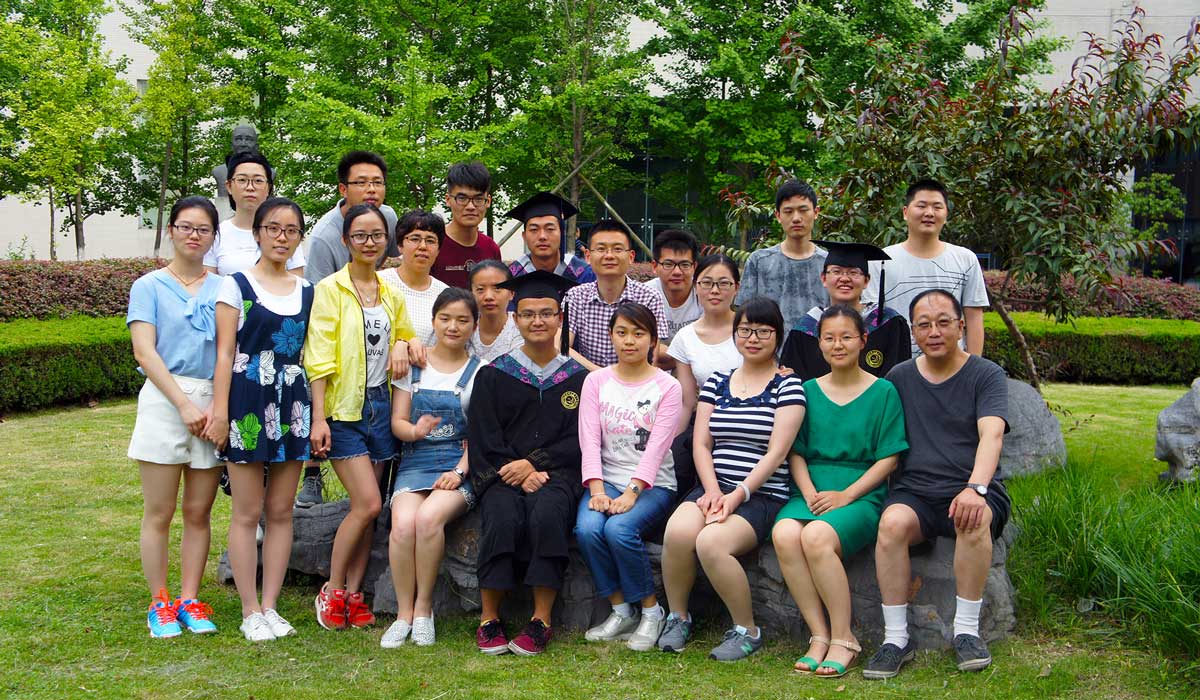2016年12月7日,我院肖卫华教授研究组在Microbial Cell Factories发表题为“Elimination of N-glycosylation by site mutation further prolongs the half-life of IFN-α/Fc fusion proteins expressed in Pichia pastoris”的研究论文。该研究利用人免疫球蛋白体内半衰期长的特性,设计和开发出了新型干扰素α-免疫球蛋白IgG Fc融合蛋白,除保留了干扰素活性外,与目前最畅销的PEG化干扰素(PEG-IFN-α,Pegasys)相比,可增加2倍的体内循环半衰期,推测可使长效干扰素α注射频率由每周1次降低到每二周1次,改善了治疗的依从性和用药成本,具有可期待的应用前景。目前,干扰素α可用于急慢性病毒性肝炎(乙肝、丙肝等)、尖锐湿疣、白血病、恶性黑色素瘤等疾病的治疗,具有广阔的市场前景。我院硕士研究生贾皓同学为论文的共同第一作者,郭雨刚博士是论文的共同第一和共同通讯作者。
Abstract:
Background
Interferon (IFN)-α has been commonly used as an antiviral drug worldwide; however, its short half-life in circulation due to its low molecular weight and sensitivity to proteases impacts its efficacy and patient compliance.
Results
In this study, we present an IgG1 Fc fusion strategy to improve the circulation half-life of IFN-α. Three different forms of IgG1 Fc fragments, including the wild type, aglycosylated homodimer and aglycosylated single chain, were each fused with IFN-α and designated as IFN-α/Fc-WT, IFN-α/Fc-MD, and IFN-α/Fc-SC, respectively. The recombinant proteins were expressed in Pichia pastoris and tested using antiviral and pharmacokinetic assays in comparison with the commercial pegylated-IFN-α (PEG-IFN-α). The in vitro study demonstrated that IFN-α/Fc-SC has the highest antiviral activity, while IFN-α/Fc-WT and IFN-α/Fc-MD exhibited antiviral activities comparable to that of PEG-IFN-α. The in vivo pharmacokinetic assay showed that both IFN-α/Fc-WT and IFN-α/Fc-MD have a longer half-life than PEG-IFN-α in SD rats, but IFN-α/Fc-SC has the shortest half-life among them. Importantly, the circulating half-life of 68.3 h for IFN-α/Fc-MD was significantly longer than those of 38.2 h for IFN-α/Fc-WT and 22.2 h for PEG-IFN-α.
Conclusions
The results demonstrate that the elimination of N-glycosylation by mutation of putative N-glycosylation site further prolongs the half-life of the IFN-α/Fc fusion protein and could present an alternative strategy for extending the half-life of low-molecular-weight proteins expressed by P. pastoris for in vivo studies as well as for future clinical applications.
